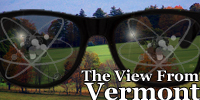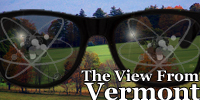Hall Talk Nov 1 - social media
Our intrepid reporter files another update from the ANS Winter Meeting.

A message from Electrical Builders, Ind.
America’s Top Performing Nuclear Plants Rely on Electrical Builders, Industries to Expand and Extend the Life of Their Critical Electrical Assets
Our intrepid reporter files another update from the ANS Winter Meeting.
Our intrepid reporter files another update from the ANS Winter Meeting.
 As discussed in my June 20 post, small modular reactors (SMRs) have many potential advantages, and could very well represent nuclear's best prospect for the future. The industry has run into trouble, however, in getting government support for getting SMRs off the ground.
As discussed in my June 20 post, small modular reactors (SMRs) have many potential advantages, and could very well represent nuclear's best prospect for the future. The industry has run into trouble, however, in getting government support for getting SMRs off the ground.
In recent weeks I have been excited to witness several genuine grassroots efforts in support of nuclear energy emerging on the scene. Several have already been covered on this forum, like the Rally for Vermont Yankee and the Webinar collaboration by the Nuclear Regulatory Commission and the American Nuclear Society. Both of these efforts proved to be very successful in bringing together nuclear supporters and gaining attention from the mainstream media.
Vermont Law School (a private institution) is known as a leader in environmental law. Students at the school have an Environmental Law Society and an International Law Society, and on September 30 these societies hosted a public meeting that featured Vaishali Patil, a woman from India who is an "environmental activist" and nuclear power opponent.
A collaborative effort between the American Nuclear Society and the U.S. Nuclear Regulatory Commission resulted in a successful 90-minute webinar on nuclear safety issues on October 4.
On Friday, September 30, the Japanese government cancelled evacuation advisories for areas located more than 20 km (12 miles) from the Fukushima Daiichi nuclear power station. The evacuation advisories initially affected 59,000 people, but 30,000 had already returned because radiation measurements showed them that there was no longer any reason to stay away from their homes. That indicates that irrational fear has begun to fade away.
REMINDER:
 At 9 a.m. on September 12, the Entergy v. State of Vermont lawsuit began hearings, regarding the continued operation of the Vermont Yankee nuclear power plant, at the federal courthouse in Brattleboro, Vt. In June, Howard Shaffer and I had gone to Brattleboro to stand outside the courthouse on the morning of the injunction hearing. At that time, the two of us provided a small pro-nuclear presence at an anti-nuclear rally organized by the Safe and Green Campaign.
At 9 a.m. on September 12, the Entergy v. State of Vermont lawsuit began hearings, regarding the continued operation of the Vermont Yankee nuclear power plant, at the federal courthouse in Brattleboro, Vt. In June, Howard Shaffer and I had gone to Brattleboro to stand outside the courthouse on the morning of the injunction hearing. At that time, the two of us provided a small pro-nuclear presence at an anti-nuclear rally organized by the Safe and Green Campaign.
Next stop, federal court!
 Entergy, the owner of the Vermont Yankee nuclear power plant (VY), has sued the state of Vermont in federal court. At the same time, VY is the subject of a suit against the Nuclear Regulatory Commission, in which intervenors claim that VY does not have a discharge permit required by the Clean Water Act.
Entergy, the owner of the Vermont Yankee nuclear power plant (VY), has sued the state of Vermont in federal court. At the same time, VY is the subject of a suit against the Nuclear Regulatory Commission, in which intervenors claim that VY does not have a discharge permit required by the Clean Water Act.
A recent article called "Earthquake, Tsunami, and Nuclear Power in Japan," written by Karen Street has gotten a lot of attention over the past week. It is a well written and comprehensive look at how humanitarian issues interface with energy issues. Shortly after the article was published in Friends Journal, Street was contacted by a personal friend (and long-time nuclear opponent) with the question, "How do I get involved?"
Vermont Yankee's opponents continue their campaign
During the past few days, I have been blessed with the opportunity to eavesdrop on an intriguing e-mail exchange involving Ted Rockwell, one of my technical heroes. Rockwell is a man whose involvement in nuclear technology dates back to the Manhattan Project, where he served as a member of a "Tiger Team" of young engineers who were assigned the task of making process improvements at Y-12.
Two British environmental writers who were bitterly opposed to nuclear energy development just a few years ago decided to do some homework. Their questioning attitude and fact seeking minds have led them to the inescapable conclusion that most of the arguments against nuclear energy repeatedly offered by the opposition have been pure fabrications. George Monbiot and Mark Lynas both bring assets to the battle for hearts and minds in the energy source debate that are hard to match - they are recent converts to a pro-nuclear technology position with deep credentials in the environmental community. In addition, they are professional communicators with stories to tell.
View from Vermont